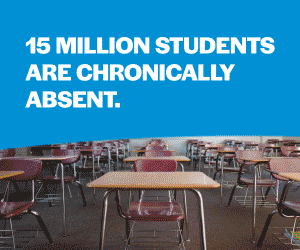
Start With Why
Before planning your next appreciation event, consider the core purpose. Effective teacher appreciation isn't about checking a box on your administrative calendar. Rather, it's about acknowledging that teachers are the primary architects of educational success. When teachers feel genuinely valued, this recognition ripples throughout the entire school community.
Research consistently shows that teacher job satisfaction directly correlates with student achievement. According to Gallup research, employees who have the opportunity to do what they do best are 57% less likely to experience burnout frequently and 30% more likely to experience feelings of belonging and inclusion. The implications are clear: appreciation isn't just nice—it's necessary for optimal school functioning.
Move Beyond Tokens
While gift cards and catered lunches certainly have their place, meaningful appreciation goes deeper. Consider these approaches that create lasting ripple effects:
1. Provide autonomy and trust
Teachers who have spent years developing their expertise crave professional respect. Micromanagement signals distrust, while autonomy communicates confidence in their abilities. When you remove unnecessary oversight and paperwork, you're not just freeing teachers' time—you're demonstrating that you value their judgment.
Some practical steps:
- Reduce mandatory meetings that could be emails
- Give teachers flexibility in implementing curriculum
- Allow teachers to experiment with new instructional approaches without fear of evaluation penalties
2. Invest in professional growth
When school leaders invest in teachers' professional development, they signal that teachers' growth matters. This doesn't always require expensive conferences. Consider:
- Creating teacher-led professional learning communities
- Establishing peer observation protocols where teachers learn from each other
- Protecting time for collaboration and planning
3. Amplify teacher voice
Nothing signals appreciation like ensuring teachers have meaningful input in school decisions. When teachers participate in shaping school policies and practices, they develop greater ownership of outcomes. Consider:
- Including teacher representatives in all major initiatives
- Creating formal structures for gathering teacher feedback
- Implementing teacher suggestions and acknowledging their contributions publicly
The Compounding Effect
Small, consistent actions to value teachers create a compounding effect over time. Consistency matters more than grand gestures. This consistency can create a powerful ripple effect.
This ripple effect extends to:
- Student experience: Students directly benefit from more engaged teachers
- School climate: Appreciation creates a positive feedback loop where teachers feel empowered to contribute their best
- Community perception: Parents and community members notice and respond to schools where teachers are visibly valued
Making It Sustainable
For teacher appreciation to create lasting ripples, it must be consistent and authentic. Teachers quickly see through performative gestures that aren't backed by substantive support. Consider these approaches:
- Recognize specific contributions: Generic praise feels hollow. When you highlight specific teaching innovations or student impact, you show you're paying attention.
- Create appreciation routines: Build recognition into regular school operations through dedicated time in faculty meetings, weekly shout-outs, or regular classroom visits.
- Remove barriers: Sometimes the best appreciation is eliminating obstacles that prevent teachers from doing their best work.
A Leader's Challenge
This Teacher Appreciation Week, try to identify one structural change you could make that would signal genuine appreciation to your staff. Is it rethinking your observation process? Creating more autonomous professional development? Restructuring meeting schedules?
Remember that the ripple effect works both ways—when leaders treat teachers as valued professionals rather than interchangeable parts, teachers extend that same respect to students, who in turn develop greater agency and investment in their learning.
True appreciation isn't about what you give—it's about the culture you create.
Jason McKenna is V.P. of Global Educational Strategy for VEX Robotics and author of “What STEM Can Do for Your Classroom: Improving Student Problem Solving, Collaboration, and Engagement, Grade K-6.” His work specializes in curriculum development and global educational strategy, and he continuously engages stakeholders in education – from parents to educators, and policymakers, helping prepare students for a knowledge-based 21st-century economy. For more of his insights, subscribe to his newsletter.






























